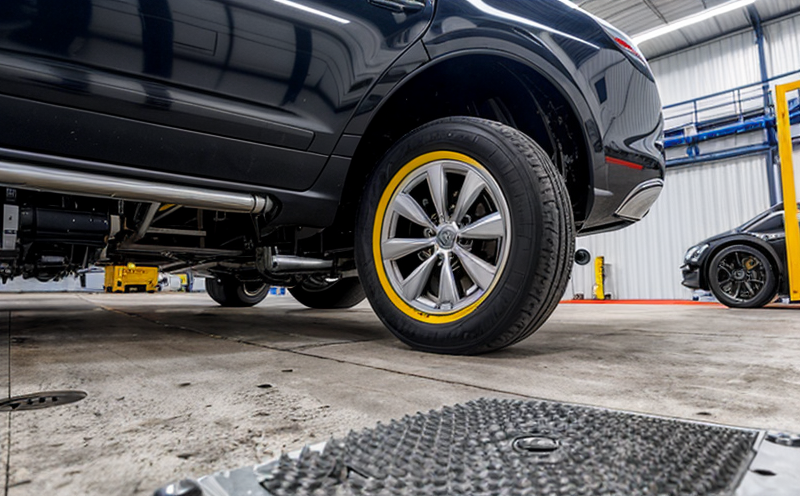ASTM F3122 Mechanical Property Testing of AM Automotive Metals
The ASTM F3122 standard is pivotal in ensuring the reliability and safety of additively manufactured (AM) automotive components. This service focuses on mechanical property testing which evaluates the strength, ductility, and toughness of metals used in additive manufacturing processes for automotive applications.
ASTM F3122 specifies the procedures for tensile testing of parts fabricated using various AM techniques such as laser powder bed fusion (LPBF), electron beam melting (EBM), and direct metal laser sintering (DMLS). The test aims to validate that these components meet or exceed the mechanical property requirements stipulated by automotive OEMs.
The process begins with careful selection of raw materials, followed by rigorous AM processes. Once the part is produced, it undergoes a series of non-destructive testing (NDT) procedures such as X-ray fluorescence analysis and dimensional measurement to ensure precision and integrity before mechanical property testing.
During tensile testing, specimens are subjected to gradually increasing load until failure. The test measures yield strength, ultimate tensile strength, elongation at break, and reduction in area. These properties are critical for assessing the structural integrity of components like engine parts, suspension systems, and exhaust systems.
The testing setup typically includes a high-capacity universal testing machine equipped with custom fixtures to accommodate the unique shapes often produced by AM technologies. The accuracy and repeatability of these tests are crucial as they form part of ongoing quality assurance processes in automotive manufacturing.
For compliance purposes, manufacturers must adhere strictly to ASTM F3122 guidelines. This ensures that all parts produced through AM techniques meet the stringent standards set by industry leaders like Ford, General Motors, and Toyota. Proper mechanical property testing not only enhances product reliability but also supports regulatory compliance with international standards.
The results of this testing are documented meticulously and form part of the certification process for new materials and processes. These records can be referenced during supplier audits or when justifying the use of innovative manufacturing methods to upper management.
Applied Standards
The ASTM F3122 standard is widely recognized for its comprehensive approach to testing additive manufactured automotive metals. It aligns with broader standards like ISO 5832 and ASME SA-80, ensuring compatibility across different industries.
- ASTM F3122
- ISO 5832
- ASME SA-80
The standard emphasizes the importance of maintaining consistency in testing protocols and results. By adhering to these standards, laboratories ensure that their findings are credible and universally accepted.
Industry Applications
Additive manufacturing (AM) is transforming the automotive industry by enabling the creation of complex geometries with reduced weight and improved performance. Testing these components according to ASTM F3122 helps manufacturers ensure that their products are robust enough for real-world conditions.
- Engine parts
- Suspension systems
- Exhaust systems
- Turbine blades (for hybrid/electric vehicles)
The ability to produce lightweight, high-strength components is critical for improving fuel efficiency and reducing emissions. Mechanical property testing ensures that these benefits are realized without compromising safety or durability.
Environmental and Sustainability Contributions
Additive manufacturing offers significant environmental advantages over traditional manufacturing methods due to reduced material waste, lower energy consumption, and decreased production time. Testing these components according to ASTM F3122 ensures that they are sustainable from both a performance and lifecycle perspective.
- Reduced material usage
- Decreased carbon footprint during production
- Shorter supply chains leading to lower emissions
- Potential for recycling post-production
The reliability of these components supports the automotive industry's efforts towards more sustainable practices, aligning with global sustainability goals.





